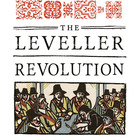-

FREE EBOOK: The Anti-Inauguration: Building Resistance in the Trump Era
As movements to resist and defeat the Trump administration continue to grow, we present The Anti-Inauguration, a free ebook available to download now, featuring an initial discussion of what opposition should look like in the age of Trump — and what kind of future we should be fighting for. It includes contributions from Naomi Klein, Owen Jones, Keeanga-Yamahtta Taylor, Jeremy Scahill, and Anand Gopal.
The Anti-Inauguration event and ebook are joint projects of Jacobin, Haymarket Books and Verso Books.
Authors
-

Mike Davis
Mike Davis is the author of several books including City of Quartz, The Monster at Our Door, Buda... -

Arundhati Roy
“Revolutions can, and often have, begun with reading.” -

Michele Wallace
“Courageous, outspoken, clear-eyed.” — Publishers Weekly
-

Angela Y. Davis
Angela Y. Davis is a political activist, scholar, author, and speaker. She is the author of... -

Juliet Jacques
“Powerful and engaging.” — New York Times
-

Ta-Nehisi Coates
“The young James Joyce of the hip-hop generation.” — Walter Mosley
Events
-

January 24, 2017
Newcastle, United Kingdom
Waterstones Newcastle
An Evening with John Rees
-

February 02, 2017 - February 03, 2017
London, United Kingdom
St Mary’s Church, Putney
The Putney Debates 2017 - Constitutional Crisis in the United Kingdom
-

January 20, 2017
Washington, District of Columbia
The Lincoln Theatre
Bracing for Trump: an anti-inauguration
-

January 28, 2017 - January 29, 2017
Brooklyn, NY
Brooklyn Public Library
A Night of Philosophy and Ideas
-

February 08, 2017
London, United Kingdom
LSE, Old Theatre, Old Building
The Production of Money: How to Break the Power of the Bankers
-

February 16, 2017
London, United Kingdom
London Review Bookshop
Money is a Feminist Issue: Ann Pettifor and Ellie Mae O'Hagan
Blog
-
Free Ebook - The Anti-Inauguration: Building Resistance in the Trump Era

As movements to resist and defeat the Trump administration continue to grow, we present The Anti-Inauguration, a free ebook available to download now, featuring an initial discussion of what opposition should look like in the age of Trump — and what kind of future we should be fighting for. It includes contributions from Naomi Klein, Owen Jones, Keeanga-Yamahtta Taylor, Jeremy Scahill, and Anand Gopal. -
Immigration: A Devious Way to Make Money
Since 2015, we've seen the deterioration of refugee rights across the world and growing hatred towards them. Corporations sense the public mood and political opportunity and behave accordingly.

-
General Strikes, Mass Strikes
This piece by Kim Moody was first published in the September/October 2012 issue of Against the Current.

Strikers surround a mail truck, Oakland General Strike, 1946.
Inspired by the boldness of the movement, activists of Occupy Oakland issued a “call for a general strike” in that city for November 2 — a sign of the movement’s radicalism and its sense of where social power lies.
One criticism of the Occupy activists was that they had not consulted the unions. Had they done so, however, it is very unlikely that very many union leaders would have agreed to jointly “call” such an action. But what’s more important, as I will argue, is that general strikes or mass strikes are seldom simply “called” from above, if at all, or until they are well underway — and those that are “called” tend to be called off just as easily. -
All That Melts into Air is Solid: The Hokum of New Times (Part 2)
Continued from part 1.

The new class
From then saying “farewell to the working class” to electing themselves the new agents of change in New Times was but a short and logical step. For the shift from industrial to postindustrial society or, more accurately, from industrial to information society did not just remove the industrial working class from its pivotal position but threw up at the same time a new information “class.” Since, however, information operated differently at two different levels — at the economic, as a factor of production (information in the sense of data fed to computers, robots, etc.), and at the political, as a factor of ideology, so to speak (information as fed to people) — the combined economic and political clout of the old working class also got differentiated, with the economic going to the technical workers and the political to the “information workers,” the intelligentsia. And in a society “over-determined” by the political/ideological, the intelligentsia, who had hitherto no class as such, had come into their own. Except that the Right intelligentsia knew that the means of information were in the hands of the bourgeoisie and they were merely the producers of ideas and information and ideology that kept the bourgeoisie in situ, while the Left intelligentsia were convinced that the ideas and information and ideology they produced would overwhelm, if not overthrow, the bourgeoisie itself.





